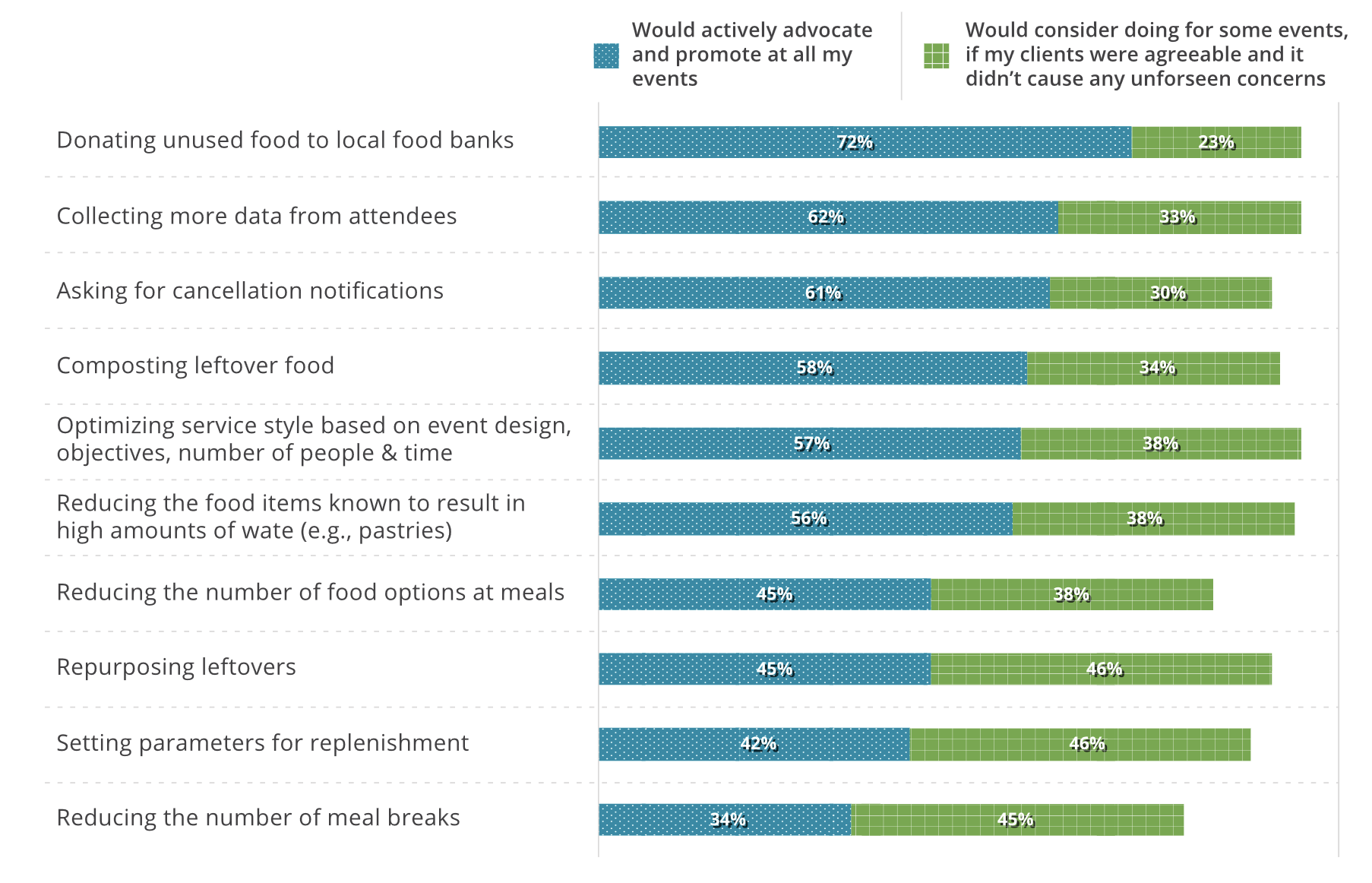What does the World Wildlife Fund, a widely respected organization in global conservation efforts, have to do with the meetings and conventions industry?
The answer is food waste.
Think about the natural habitats that are destroyed to grow food that you can’t eat, the chemicals used to grow that food, and the money spent on that food, says Aurora Dawn Benton, founder of sustainability consultancy Astrapto.
She says meetings and conventions contribute greatly to this problem by routinely giving attendees too much food at buffets and breaks: Every planner has seen it all: piles of bagels, vats of oatmeal, chafing dishes with bacon, tables pre-stocked with desserts, rolls and butter.
To learn more about the challenges of food waste at business events, World Wildlife Fund worked with Benton and research partner Rick Garlick & Associates to survey 553 meeting planners about their attitudes toward preventing food waste. On average, planners hosted 20 events per year, with an average of 366 attendees per event.
The resulting report, released in May, was titled “Uncovering an Appetite for Change: The Urgency of Addressing Food Waste at Professional Meetings and Events.” Sponsored by Deloitte, the survey found that while interest in preventing food waste is quite high among planners and their clients, there is a disconnect between them and their hotel partners in prioritizing change initiatives.
For example, 55 percent of planners report that their clients’ efforts to prevent food waste are a “very high priority,” while another 33 percent say their clients “believe in it, but could do more.” Yet only 16 percent say their venues “frequently” address food waste prevention, and 37 percent say their venues proactively address the issue “occasionally.” Additionally, only 45 percent of planners report that they themselves address the issue “frequently.”
Interestingly, the majority of planners said they would be “much more likely” (58%) or “somewhat more likely” (25%) to use a venue that actively offers solutions to food waste in the future.
So why aren’t the conversations happening?
Planners report being scared of running out of food and being too busy to focus on waste prevention.Other reasons include a lack of awareness of the food waste issue, resistance to change, prioritizing image, sales and profitability over sustainability, a perception that the food waste issue is liberal or politically biased, and financial considerations, including a desire to meet minimum food and drink requirements.
The researchers also presented 10 approaches to preventing food waste to the experts at the meeting. The experts were asked whether they 1) would actively promote this approach, 2) would consider it for some events if their clients agreed, or 3) were neutral. (Figure from the WWF report):

The study also includes statistics on the effectiveness of food waste prevention measures, the importance of collecting and sharing data, and various ideas for tackling food waste.
Overall, the argument stands: “Partnering with planners to prevent food waste at meetings and events is an important best business practice for meeting venues. While some venues may feel constrained by the need to increase revenue by selling as much food as possible, the data shows that reduced revenue is easily offset by an increased preferred share in the future.” Read the full study here.


